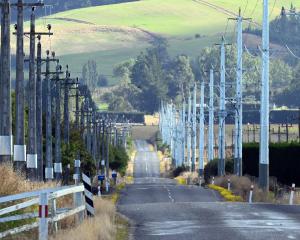Nicholas Khoo warns about a deep and dangerous complacency in the way liberal democracies view international relations.
At critical turning points in world history, such as the one we are now in, the principal causes of state action are more starkly revealed.
Particularly during these times, states act on the imperatives of political power rather than economics, and national rather than international interests.
This may seem self-evident. It is not.
In liberal democratic polities, a deep complacency has accompanied an extended period of relative post-Cold War peace.
This complacency is reflected in the widespread belief that other states in the international system will see things the way we do, and value the status quo as much as we do.
This is not completely unexpected, and is in many respects understandable.
A similar process occurred immediately after World War 1 and World War 2. But there is something unique in our contemporary thinking about international affairs.
In the two decades after the Cold War, a confluence of increasing economic interdependence, the growth of globalisation and international institutions, has led to a historical belief that the ways states conduct themselves have somehow either been transformed or, at a minimum, seriously altered.
Thus, while their reasons differ, scholars as varied as G. John Ikenberry, Robert Jervis, and William Wohlforth, have seen eye to eye on the possibility of an extended period of Great Power peace. However, this view is misplaced, and a faulty one on which to base policy.
Politics and history typically return with a vengeance.
A survey of recent developments in world politics is instructive.
In Europe, Russia has reacted to the overthrow of the corrupt, but democratically-elected, Viktor Yanukovich regime in Ukraine by asserting a long-standing interest in what has historically been its sphere of influence.
Moscow has dispatched troops to the Russian-Ukraine border, and repeatedly violated its neighbour's sovereignty, not least in aiding and abetting the pro-Russian, anti-Kiev opposition in Eastern Ukraine.
Moreover, the Russians have taken these actions despite the fact they are taking a beating in the global financial markets and incurring a variety of international sanctions.
Yet, for all the hysteria emanating from the US and European press, much of it focused on the severely public relations-challenged Russian leader Vladimir Putin, a dispassionate analysis suggests that in pursuing its policy, Moscow has limited political aims and acted with relative restraint.
These are focused on the restoration of a buffer zone that was disrupted by Nato's incorporation of successive waves of democratising states in Central and Eastern Europe since the end of the Cold War.
Hence, Putin's restraint after the return of Crimea to the Russian fold.
Moreover, the view that Putin is a power-hungry tyrant who requires an education in alleged global norms obfuscates rather than clarifies what is really going on.
This Manichean interpretation overlooks the fact that, even in the event Russia establishes a sphere of influence over the entire Eastern Ukraine region, it has lost the original buffer that existed before the Yanukovich regime's demise.
In Asia, the story is similar.
That continent is the emerging centre of globalisation, and its fulcrum is China.
Yet, when we need it to work the most, economic imperatives and an associated faith in regional multilateral institutions fail us.
China is Japan's and Vietnam's largest trading partner, and the Philippines' fourth largest.
These economically robust relationships are precisely the ones that highlight a growing and intense regional rivalry.
Compounding the particularly serious Sino-Japanese disputes in the East China Sea since late 2012, China's long-standing maritime disputes with the Philippines and Vietnam in the South China Sea have further escalated in recent weeks.
In particular, the ongoing attempt by a Chinese state oil company to conduct exploratory probes in contested waters in the Paracel Islands in the South China Sea has provoked a severe Vietnamese reaction in the form of anti-China riots.
Attempts to resolve these disputes at regional institutions, notably at the Association of Southeast Asian Nations and the Asean Regional Forum, have had little effect.
However one spins the story, it is hard to escape the conclusion that China's self-styled ''peaceful rise'' has taken a severe dent and arguably been irreparably derailed.
That said, a qualifier needs to be attached to the analysis. While the Russian and Chinese cases illuminate the primacy of politics and national interests, in one important respect the China case is very different from the Russian one.
Unlike Moscow, Beijing is operating from a position of increasing economic and military strength.
This explains why the US needs to focus rather more time and energy on mending relations with Russia in order
to deal constructively and wisely with China, rather than continue on a course where Washington has a deteriorating relationship with both these powers at the same time.
Coming after joint Sino-Russian naval exercises in the East China Sea, an agreement reached recently in Beijing on a 30-year natural gas contract suggests both powers are not going to sit idly by as the Obama administration dithers.
Does this sound like a pitch for balance-of-power politics and the enlightened pursuit of national interests by the US and others?
This will not be an easy sell. But we are entering a different age, one where power-balancing and the strategic logic that underpins it need to be rediscovered.
• Dr Nicholas Khoo is senior lecturer in the department of politics at the University of Otago where he is the incoming director of the MA programme in international studies.
He is the author of "Collateral Damage: Sino-Soviet Rivalry and the Termination of the Sino-Vietnamese Alliance" (New York: Columbia University Press, 2011).











